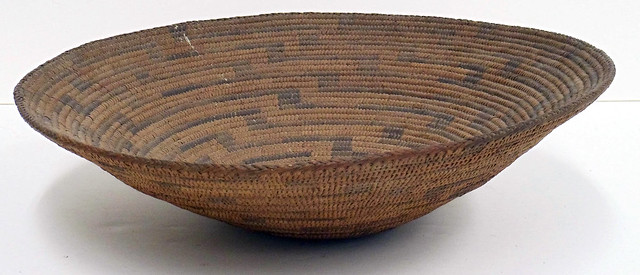Botswana Palm Tree Art
Palm Tree Art.
The Hyphaene Petersiana tree is locally known in the African country of Botswana as the Mokolwane Palm. The Mokolwane Palm is a tree that produces the leaves used in the internationally popular Botswana traditional basket weaving art.

Botswana Palm Tree Art
Explore and Understand Africa Through Her Food and Culture
Mokolwane Palm Tree grows from Central Africa to Namibia, Botswana, Zimbabwe and South Africa in dry sandy areas, often away from rivers.
There are a series of small villages alongside the West Side of the Okavango Delta Botswana that create the woven art. The around 68,000 sq km or 17 million acre Okavango Delta marshlands and plains are home to some of the world’s most endangered species of large animals, such as lions and cheetahs, white and black rhinoceros, and the endangered African wild dog.
Women were walking greater distances every year, frequently a full day's journey, to find young Mokolwane Palms to harvest in order to create their woven art.
The women of the villages, almost all of whom are basket weavers, were increasingly reluctant to undertake the journey due to the risks of traveling alone far from home.
Young Mokolwane trees have thin blade-like leaves, which are sought-after by weavers for basketry. This is one of the problems affecting the scarcity of the young Mokolwane Palm.
As the Mokolwane palm ages it grows up 25 meters or 80 feet tall, with its characteristic swollen in the middle trunk and feather-like leaves on the top of the tree. The Mokolwane also bear fruits, which are edible and can take from 10-20 years to yield.
Over the years, there have been major efforts to cultivate and establish farms for growing the Mokolwane Palm. Due to the scarcity of the tree, residents now buy the necessary raw materials for basket weaving from markets.
The Palm leaves they purchase are already bleached and dyed and are ready to be worked. A small Mokolwane Palm basket can take a few days to create while large complicated baskets may take many months of painstaking work.
Overview of basket weaving materials, uses and techniques near Chobe National Park in Botswana.
Together we build awareness that boost harmony, education, and success, below are more links to articles you will find thought provoking.
- Deadliest routes for refugees
- Cooking with shea butter oil
- Worst serial killers recorded in history are women
- Indigenous healers and plants used
- Night running illness or magic
- What is back to Africa







